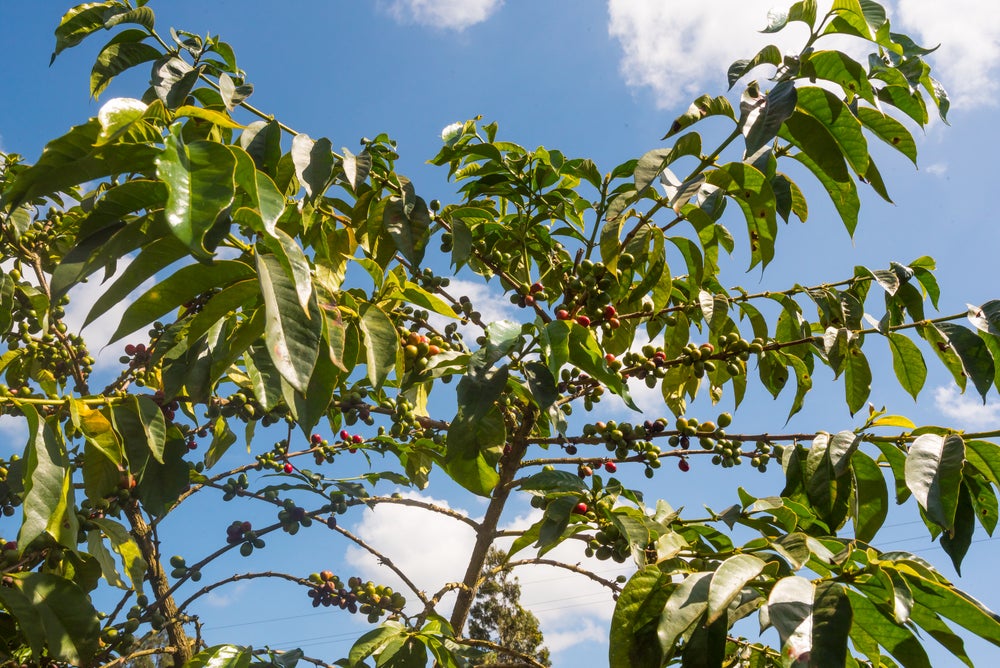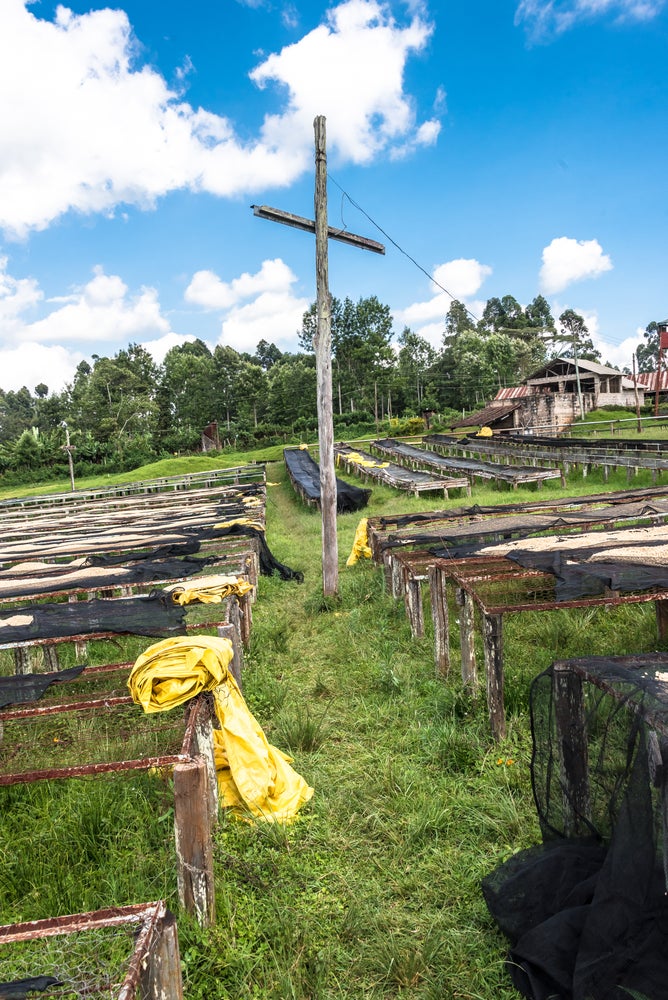About This Coffee
Kiangundo Factory (the name for wet mills in Kenya) receives cherry from 690+ producers who farm on the land surrounding the factory in Karatina, Nyeri County. Kiangundo Factory is one of 4 factories managed by Kiama Cooperative Farmers' Society. Kiama, founded in 2004, represents over 3,000 farmers in Nyeri.
Cultivation
The factory receives support from Sucafina Kenya. Farmers receive regular training from Sucafina in Good Agricultural Practices, including fertilizer application, pruning guidance and renovation advice, which help them keep their small farms in optimal condition.
Nyeri County is one Kenya's most famous growing regions. Much of the coffee here is cultivated in the foothills of the Aberdare Mountains, which have warm days and cool nights and a plentiful water supply.
The name Nyeri is derived from the Masaai word nyiro, meaning red, after the red volcanic soil in the area. The name was adapted by white settler farmers to Nyeri. Most farmers in the area today grow tea and coffee as cash crops. Coffee varieties in the region are usually a mix between SL 28, SL 34 (roughly 80%) Batian and Ruiri 11.
Harvest & Post-Harvest
Smallholders handpick ripe cherry and deliver it to the factory that day. At intake, cherry is meticulously sorted. All sorting is overseen by the cherry clerk, who ensures that only ripe, undamaged cherry Is received.
Once sorted, cherry is pulped on the factory’s disc pulper and then density sorted. Pulped cherry is dry fermented for 16 to 24 hours. Skilled staff oversee fermentation, checking regularly to ensure fermented is halted at just the right moment. After fermentation, cherry is sent through washing and grading channels.
Parchment is soaked for 24 hours and then placed on raised drying beds. Staff sort drying parchment to remove any remaining defective beans and turn parchment constantly to promote even drying. Drying typically takes between 1 and 3 weeks.
Parchment is milled at Kahawa Bora Dry Mill.
About Peaberries
PB stands for peaberry. Peaberry is a name given to a very specific shape of coffee bean. In Spanish, peaberries are called “caracol”, which means “snail”. The name aptly describes the shape of the peaberry bean, which appears slightly curved in on itself.
Peaberries are the result of a natural mutation in the coffee cherry. Whereas there are usually two beans nestled together in each fruit, a cherry with a peaberry mutation only forms one bean. Thus, peaberries are a single, rounder bean.
Peaberry mutations occur in approximately 5% of all coffee. The beans are known for being rounder, smaller and denser, which can contribute to a more even roast color when handled correctly. Many people find peaberries to have a sweeter flavor profile, as well.
Since peaberries are a natural mutation that is not visible from the outside of the cherry, peaberries must be sorted out during the screen grading stage of dry milling. The peaberry screens have the smallest holes, which are oblong to allow the rounder beans to fall through.
Coffee in Kenya
Though coffee growing had a relatively late start in Kenya, the industry has gained and maintained a impressive reputation. Since the start of production, Kenyan coffee has been recognized for its high-quality, meticulous preparation and exquisite flavors. Our in-country sister company, Sucafina Kenya, works with farmers across the country to ensure these exceptional coffees gain the accolades they deserve.
Today, more than 600,000 smallholders farming fewer than 5 acres compose 99% of the coffee farming population of Kenya. Their farms cover more than 75% of total coffee growing land and produce nearly 70% of the country’s coffee. These farmers are organized into hundreds of Farmer Cooperative Societies (FCS), all of which operate at least one factory. The remainder of annual production is grown and processed by small, medium and large land estates. Most of the larger estates have their own washing stations.
Most Kenyan coffees are fully washed and dried on raised beds. The country still upholds its reputation for high quality and attention to detail at its many washing stations. The best factories employ stringent sorting practices at cherry intake, and many of them have had the same management staff in place for years.

